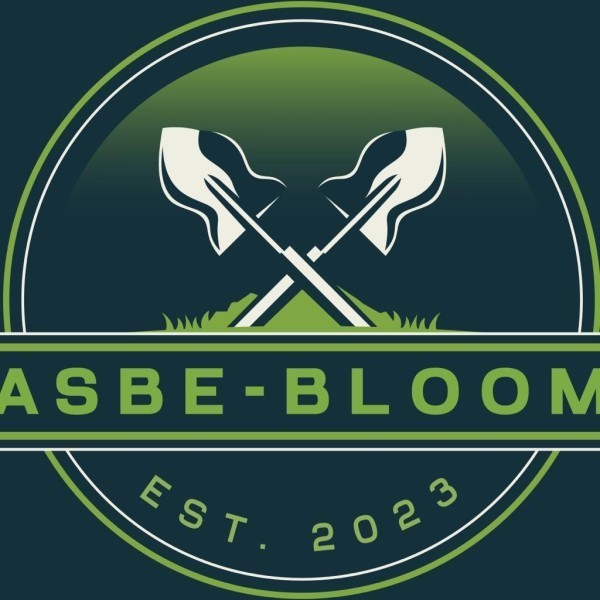Garden Fencing in Harleston
Search Garden Fencing in places nearby
Introduction to Garden Fencing in Harleston
Garden fencing in Harleston is more than just a boundary marker; it's an essential part of any garden's design and functionality. Whether you're looking to enhance privacy, improve security, or simply add a decorative touch to your outdoor space, the right fence can make all the difference. In this article, we'll explore the various aspects of garden fencing in Harleston, providing you with the knowledge and inspiration to make informed decisions for your garden.
The Importance of Garden Fencing
Garden fencing serves multiple purposes, each contributing to the overall appeal and utility of your garden. Firstly, it provides privacy, allowing you to enjoy your outdoor space without prying eyes. Secondly, it enhances security, keeping unwanted visitors and animals at bay. Additionally, fencing can act as a windbreak, protecting delicate plants from harsh weather conditions. Finally, a well-chosen fence can add aesthetic value, complementing the style of your home and garden.
Privacy and Security
Privacy is a top concern for many homeowners, and a solid garden fence can offer a sense of seclusion. In Harleston, where gardens are often close to neighbours, a tall, sturdy fence can create a private oasis. Security is another critical factor, as a robust fence can deter intruders and keep pets and children safe within the garden boundaries.
Aesthetic Appeal
Garden fencing isn't just functional; it can also be a beautiful addition to your landscape. With a variety of materials and styles available, you can choose a fence that complements your garden's design. From traditional wooden panels to modern metal designs, the options are endless.
Types of Garden Fencing Available in Harleston
When it comes to garden fencing in Harleston, there's a wide range of materials and styles to choose from. Each type has its unique benefits and can be tailored to suit your specific needs and preferences.
Wooden Fencing
Wooden fencing is a classic choice, offering a natural and timeless look. It's versatile, with options ranging from picket fences to tall privacy panels. Wood can be painted or stained to match your garden's aesthetic, and it's relatively easy to install and repair.
Metal Fencing
Metal fencing, such as wrought iron or aluminium, provides a sleek and modern appearance. It's durable and low-maintenance, making it an excellent choice for those seeking longevity. Metal fences can be customised with intricate designs, adding a touch of elegance to your garden.
Vinyl Fencing
Vinyl fencing is a popular choice for its durability and ease of maintenance. It doesn't require painting or staining and is resistant to pests and rot. Available in various styles and colours, vinyl fencing can mimic the look of wood or metal without the associated upkeep.
Composite Fencing
Composite fencing combines the best of both worlds, offering the appearance of wood with the durability of plastic. It's eco-friendly, made from recycled materials, and requires minimal maintenance. Composite fencing is resistant to weathering, making it ideal for Harleston's climate.
Choosing the Right Fence for Your Garden
Selecting the perfect fence for your garden involves considering several factors, including your budget, the purpose of the fence, and the overall style of your garden. Here are some tips to help you make the right choice.
Assessing Your Needs
Before choosing a fence, consider what you want to achieve. Are you looking for privacy, security, or simply a decorative element? Understanding your primary goals will help narrow down your options.
Budget Considerations
Your budget will play a significant role in determining the type of fence you can afford. While wooden fences are generally more affordable, metal and composite options may offer better long-term value due to their durability and low maintenance requirements.
Matching Your Garden's Style
Your fence should complement the overall design of your garden. Consider the architectural style of your home and the existing landscape elements when selecting a fence. A cohesive look will enhance the beauty of your outdoor space.
Installation and Maintenance of Garden Fencing
Proper installation and maintenance are crucial to ensuring the longevity and effectiveness of your garden fence. Whether you choose to install the fence yourself or hire a professional, understanding the process and upkeep requirements is essential.
DIY Installation
If you're handy with tools and enjoy a bit of DIY, installing a garden fence can be a rewarding project. Start by measuring your garden's perimeter and marking the fence line. Dig post holes and set the posts in concrete for stability. Attach the panels or rails, ensuring they're level and secure.
Professional Installation
For those who prefer to leave it to the experts, hiring a professional fencing contractor can save time and ensure a high-quality finish. Professionals have the experience and tools needed to tackle challenging installations, such as sloped gardens or uneven terrain.
Maintenance Tips
Regular maintenance will keep your fence looking great and functioning well. Wooden fences may require periodic staining or painting to protect against the elements. Metal fences should be inspected for rust and treated as needed. Vinyl and composite fences are low-maintenance but should be cleaned occasionally to remove dirt and debris.
Legal Considerations for Garden Fencing in Harleston
Before installing a garden fence in Harleston, it's important to be aware of any legal requirements or restrictions. These may include planning permissions, boundary agreements, and height regulations.
Planning Permissions
In some cases, you may need planning permission to erect a fence, particularly if it's over a certain height or located near a road. Check with your local council to ensure compliance with any regulations.
Boundary Agreements
It's essential to establish clear boundaries with your neighbours before installing a fence. Discuss your plans and come to an agreement to avoid potential disputes. A written agreement can provide clarity and prevent misunderstandings.
Height Regulations
There may be restrictions on the height of your garden fence, especially if it borders a public area. Familiarise yourself with local regulations to ensure your fence meets the required standards.
Environmental Impact of Garden Fencing
When choosing a garden fence, consider its environmental impact. Opting for sustainable materials and eco-friendly practices can reduce your carbon footprint and contribute to a healthier planet.
Sustainable Materials
Look for fencing materials that are sustainably sourced, such as FSC-certified wood or recycled composite materials. These options minimise environmental impact and support responsible forestry practices.
Eco-Friendly Practices
Consider using natural finishes and treatments for your fence, avoiding harsh chemicals that can harm the environment. Additionally, recycling old fencing materials can reduce waste and promote sustainability.
Enhancing Your Garden with Fencing
Garden fencing can be more than just a boundary; it can enhance the beauty and functionality of your outdoor space. Here are some creative ideas to make the most of your garden fence.
Vertical Gardens
Transform your fence into a vertical garden by attaching planters or trellises. This not only adds greenery but also maximises space in smaller gardens. Choose climbing plants like ivy or jasmine for a lush, living wall.
Decorative Elements
Add decorative elements to your fence, such as hanging baskets, fairy lights, or outdoor art. These touches can personalise your garden and create a welcoming atmosphere.
Creating Zones
Use fencing to create distinct zones within your garden, such as a play area for children or a quiet retreat for relaxation. This can help organise your space and make it more functional.
Frequently Asked Questions
- What is the best type of garden fencing for privacy? Wooden and vinyl fences are popular choices for privacy due to their solid construction and height options.
- How often should I maintain my garden fence? Maintenance frequency depends on the material. Wooden fences may need annual staining, while metal and vinyl fences require less frequent upkeep.
- Do I need planning permission for a garden fence in Harleston? It depends on the height and location of the fence. Check with your local council for specific regulations.
- Can I install a garden fence myself? Yes, if you're comfortable with DIY projects. However, professional installation is recommended for complex or large-scale fencing.
- What are the most eco-friendly fencing options? FSC-certified wood and recycled composite materials are sustainable choices that minimise environmental impact.
- How can I enhance my garden fence? Consider adding vertical gardens, decorative elements, or creating zones to make your fence more functional and attractive.
Garden fencing in Harleston offers a myriad of possibilities to enhance your outdoor space. By understanding the different types of fencing, considering your specific needs, and adhering to local regulations, you can create a garden that is both beautiful and functional. Whether you're seeking privacy, security, or simply a touch of elegance, the right fence can transform your garden into a personal paradise.






